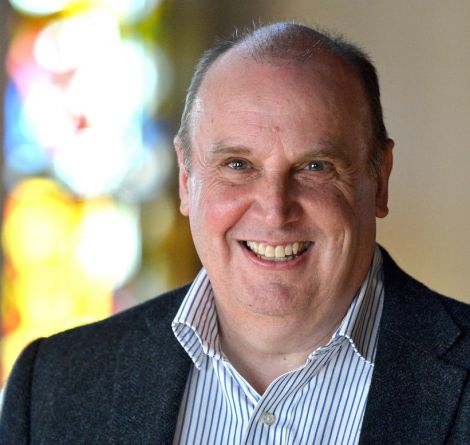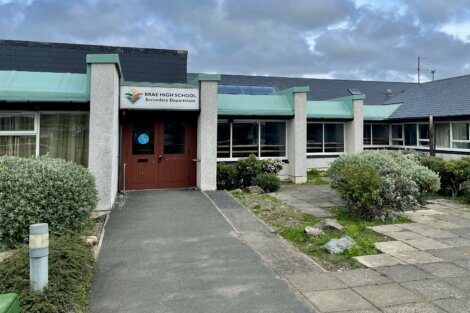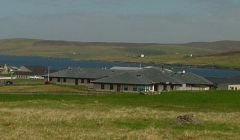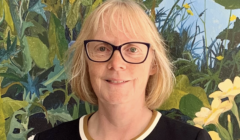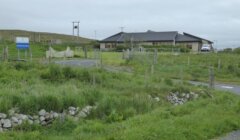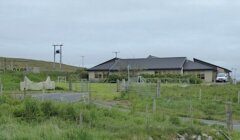Who stands for the Council? / ‘Exciting opportunity’ to shape education to meet bairns’ long-term needs
Debate has moved decisively away from focus on school closures
The “Who stands for the council? It’s people like you” campaign aims to encourage more candidates to come forward for May’s elections to Shetland Islands Council. In the third of a series of features looking at some of the main issues the local authority is working on, through its corporate plan Our Ambition 2021-26, Education and Families committee chair George Smith reflects on a council term that saw debate shift away from school closures and resulted in morale within the service improving.
AT THE outset of this council’s term the Education and Families Committee decided that school closures would not be pursued unless the wider community in the affected area wanted it to happen.
At a single stroke, following a decade and more where the spectre of closures was never far from council agenda papers and local media headlines, the whole tenor of the debate surrounding local education policy was transformed.
A decisive shift away from contemplating whether to take a primary department or secondary school away from one community or another has enabled members and officials alike to spend the past five years focusing on how best to sustain high quality learning and teaching throughout Shetland.
Committee chairman Chair George Smith says: “Anyone thinking to stand for the council needs to get their heads around the fact that educational drivers are the most important factor in ensuring we can deliver education across the islands in a way that is sustainable but also good quality.
“We have an exciting opportunity to create an education system for the long term that ensures all our bairns have the skills and ability they need to live and work in Shetland if that’s what they want to do.”
Looking ahead the 2022 intake of new councillors will find plenty in their in-tray. Alongside the unpredictable challenges presented by Covid-19, the council is working on a learning estate strategy that will involve making the case for funding to improve the existing estate, including a new school in Brae.
Outside engagement has always been important to shaping Shetland’s education system – dating way back to the early 1980s when the late Geordie Jamieson was despatched to the High Court in London to defend the imposition of a cap on Anderson High School pupil numbers as the population rose in the oil era. That ultimately resulted in a successful case being made for a new school in Brae.
Now much of that engagement happens with the Scottish Government, with new schools in Lerwick and Yell built through its “Schools for the Future” programme, while councillors are also tasked with deciding how to implement a host of policies set at Holyrood.
In recent years those have policies have included the provision of 1,140 hours of free pre-school nursery care for three-to-five year olds, and Smith says the community could be ideally placed to undertake pilot schemes to go further and offer “wraparound care” encompassing breakfast-time and after-school childcare.
Members are also able to give the community’s voice in resisting any “centralising tendency” and to advocate “the value of decisions being made as close to those affected as possible”.
A fully empowered education system must allow for input from all, and Smith says councillors’ participation in parent councils in their own ward offers the means to get a “good barometer of how folk are feeling about their community” and a “good way of reaching folk you might not otherwise be in regular contact with”.
Shaping future of education system a great way to give back to community
The Education and Families Committee brief includes other aspects of children’s services beyond schools – and Smith says it is vital councillors are able to “see the big picture” of how the department contributes to wider SIC objectives.
Among those objectives is ensuring that mental health difficulties and other troubles young folk encounter are recognised through “early intervention that prevents problems becoming much bigger in the future”.
He points out that, just as many families are unable to access UK-wide benefits because the system does not recognise the islands’ higher cost of living, some families do not qualify for free school meals when perhaps they should.
Anyone thinking of standing for election will have had some experience of the education system, and Smith feels the opportunity to shape how that system looks in the future is both rewarding in itself and a great way to give something back to the community.
He says removing the programme of proposed school closures that had “confused and annoyed” many rural communities was welcomed by education officials who had gone through a “really, really tough time”.
“The whole premise of school closures was predicated on the idea that it was going to save money, but it doesn’t save the kind of sums that some councillors at the time thought it would.”
Withdrawing that threat has helped foster a “really good relationship among the staff”, a “greater degree of trust and a higher degree of confidence” that is now spreading through parent councils and communities too.
“If we get a new high school at Brae, for example, it opens up a whole lot of opportunity,” Smith adds. “It’s about the parents looking at that rather than it being imposed.
“If we saw some move through placing requests [for children to attend an alternative school] and determined that some closures were acceptable to communities, it would be a ground-up rather than a top-down process.”
Interested in standing to be a councillor this May? Find out more via the elections section on the SIC’s website.
Become a member of Shetland News
Shetland News is asking its readers to consider paying for membership to get additional perks:
- Removal of third-party ads;
- Bookmark posts to read later;
- Exclusive curated weekly newsletter;
- Hide membership messages;
- Comments open for discussion.
If you appreciate what we do and feel strongly about impartial local journalism, then please become a member of Shetland News by either making a single payment, or setting up a monthly, quarterly or yearly subscription.



